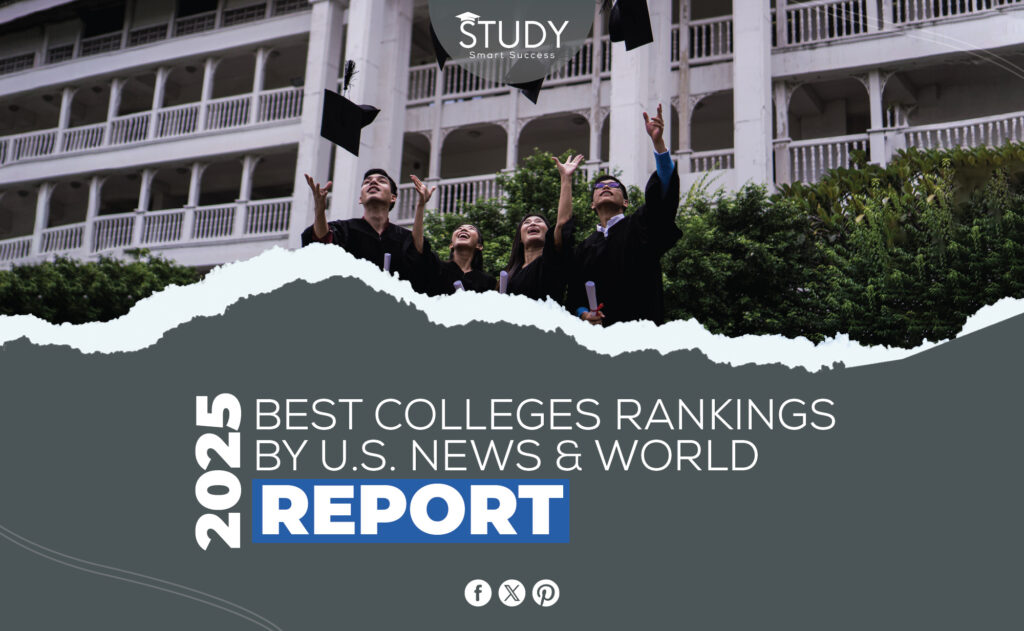Introduction to the Rankings
U.S. News & World Report’s 2025 best colleges’ rankings aid prospective students and their families through college selection. These rankings use up to 17 academic quality indicators to evaluate almost 1,500 US schools and institutions. This guide explains the criteria, modifications, and how to use the rankings to make higher education selections.
Criteria for Evaluation
The rankings emphasize a range of factors, including:
- Social Mobility: Evaluating the institution’s effectiveness in enrolling and graduating students from varied backgrounds while maintaining acceptable debt levels.
- Post-Graduate Success: Evaluating the income of graduates to assess the financial return on their educational investment.
Over fifty percent of an institution’s ranking is influenced by outcome metrics such as graduation rates, retention rates, and post-graduate financial stability.
Key Updates in This Year’s Rankings
- Emphasis on Social Mobility: This year maintains a robust focus on assisting students from lower-income families, facilitating their success with diminished financial strain.
- Leading Advancers: Institutions such as D’Youville University and the University of Texas–San Antonio have experienced notable increases in their rankings owing to enhanced performance across multiple assessed parameters.
Specialized Rankings and Categories
Besides the general rankings, U.S. News also provides lists focused on:
- Best Value Schools
- Most Innovative Colleges
- Top Performers on Social Mobility
- Historically Black Colleges and Universities (HBCUs)
- Programs Enhancing Student Experience: Such as internships, study abroad programs, and service learning opportunities.
Top Ranked Institutions for 2025
Best National Universities:
Best National Liberal Arts Colleges:
Top Public Schools and HBCUs:
- Top public universities include UCLA and UC Berkeley.
- Leading HBCUs are Spelman College and Howard University.
Using the Rankings to Choose a College
To make the best use of the rankings:
- Determine Priorities: Identify the most significant aspects influencing your educational objectives, such as academic rigor, social mobility, or educational expenses.
- Examine Specialized Rankings: Examine categories that correspond with your individual needs or interests, such as institutions offering optimal value or programs that enrich the student experience.
- Contemplate Post-Graduate Achievement: Examine outcome data to evaluate the prospective return on investment.
Additional Resources
U.S. News offers resources such as the Scholarship Finder and College Compass to assist prospective students in locating financial aid and exploring detailed information about specific institutions and their rankings.
Conclusion
The Best Colleges 2025 handbook from U.S. News & World Report provides essential insights and comprehensive data to assist students and families in selecting the appropriate college. By comprehending and employing these rankings, you may make an informed decision corresponding to your academic and professional objectives.


